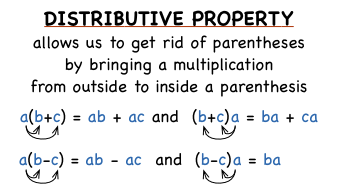#2(d-4) = 0.3d + 4 - 2 + 0.6d#
First, combine the like terms on the right hand side of the equation:
#2(d-4) = (0.3d + 0.6d) + (4 - 2)#
#2(d-4) = 0.9d + 2#
Now use the distributive property (shown below) to simplify/expand the left hand side:

Following this image, we know that:
#color(blue)(2(d-4) = (2 * d) + (2 * -4) = 2d - 8)#
Put this expression back into the equation:
#2d - 8 = 0.9d + 2#
Subtract #color(blue)(0.9d)# from both sides:
#2d - 8 quadcolor(blue)(-quad0.9d) = 0.9d + 2 quadcolor(blue)(-quad0.9d)#
#1.1d - 8 = 2#
Add #color(blue)8# to both sides:
#1.1d - 8 quadcolor(blue)(+quad8) = 2 quadcolor(blue)(+quad8)#
#1.1d = 10#
Divide both sides by #color(blue)(1.1)#:
#(1.1d)/color(blue)(1.1) = 10/color(blue)1.1#
Therefore,
#d = 100/11# or about #9.09# (rounded to nearest hundredth's place)
Hope this helps!


